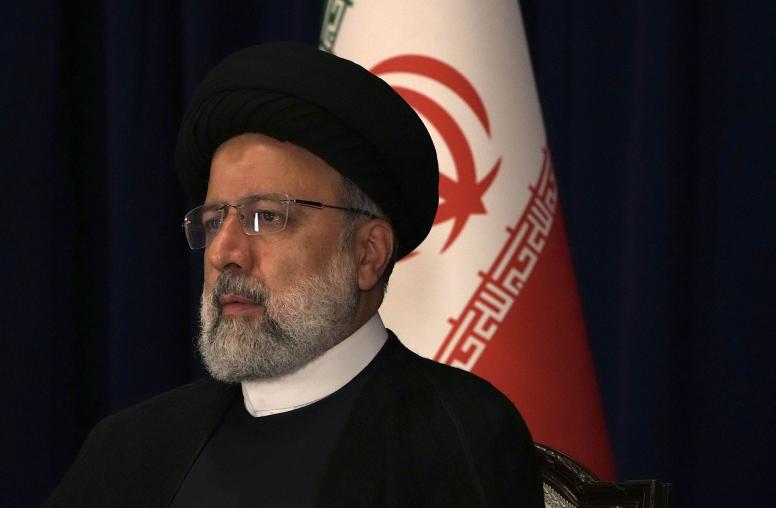Daniel Brumberg is senior adviser to the Center for Conflict Analysis and Prevention at the U.S. Institute of Peace (USIP), where he focuses on issues of democratization and political reform in the Middle East and wider Islamic world. He is also an associate professor at Georgetown University. Earlier, he was a Jennings Randolph senior fellow at USIP, where he pursued a study of power sharing in the Middle East and Southeast Asia.
What were the results of the P5-plus-1 talks with Iran in Istanbul on April 14, 2012, and was the outcome surprising?
Overall, I was reasonably pleased and only a little surprised. As I laid out in our
previous discussion, a new set of pressures on Iran has built up because of the regional situation prompted by the Arab Spring, the growing impact of U.S. and European sanctions on Iran's oil-dependent economy and the real prospect of an Israeli or U.S. attack on Iran in the event of failure. No side could afford to allow these talks to collapse, given the implications. So we have seen some real compromise on both sides as well as a plan to conduct follow-up talks in Baghdad on May 23.
What is the nature of that compromise?
I would point to the statement by the European Union’s foreign policy chief, Catherine Ashton (pictured). She said, "We have agreed that the nonproliferation treaty (NPT) forms a key basis for what must be serious engagement to ensure that all the obligations under the treaty are met by Iran while fully respecting Iran's right to the peaceful use of nuclear energy."
That is a mouthful–a diplomatic statement par excellence because it contains language that is sufficiently broad and vague to give both sides something. Perhaps most important, the statement defines the NPT as “a” (as opposed to “the”) key basis for a “serious engagement.” This implies, or certainly could be read to imply, recognition of Iran’s right as an NPT signatory to enrich uranium. This is a key demand by Iran, and it is unlikely that any diplomatic solution is possible that does provide for some form of enrichment. But notice that the statement says that the NPT is only “a” key basis, not the only one. This language provides reassurance to the P5-plus-1 members–especially the United States and its Western allies—that any such recognition of NPT rights will depend on Iran responding to the full measure of requirements set out for enrichment in the NPT itself and in the more restrictive “Additional Protocol.” The ensuing reference to “all obligations under the treaty” emphasizes this point again. But by concluding the statement with a somewhat vague reference to “Iran’s right to the peaceful use of nuclear energy,” Ashton avoids or postpones the question of whether such a right will include enrichment.
Do you think this formula will move the ball a bit down the diplomatic field?
The real issue is what the diplomatic players think is important. Iran’s representative, Saeed Jalili, who was in Istanbul in his capacity as representative of Supreme Leader Ali Khamanei, praised this “positive approach” and the talks themselves, which he said advanced a “process of cooperation.”
What issues will the next round of talks address?
That is yet to be determined. However, Ashton and colleagues have insisted that any future talks be based on a “step-by-step approach and reciprocity”—concessions and incentives from both sides. Moreover, she declared that “subsequent meetings will lead to concrete steps towards a comprehensive negotiated solution.” If this proves to be the case, then the Istanbul talks may turn out to be a historic turning point. After all, the key requirement of any successful negotiation is to have some shared strategic vision of where all sides want the talks to lead to. Any reference suggesting a political will to engage the strategic issues could turn out to be a significant step. We will have to wait and see.
What about the choice of Baghdad as the location for the next talks? Is that significant as well?
Yes, indeed. The Iranians proposed this location, and the United States and its partners agreed. This was something of a positive political gesture given that Iran had previously balked at holding the talks in Istanbul, given Tehran’s unhappiness with Turkey’s opposition to the Syrian regime of Bashar Assad, an ally of Iran. From its vantage point, Tehran preferred a more “neutral” location, or if you like, a country that was not unfavorable to Iran. Iraq fits that bill very well, given the close relations between Iraq and the Islamic Republic of Iran. The agreement to meet in Baghdad was a confidence-building measure if I have ever seen one. That said, we are still in an early part of the game. Something could come from any direction and blow up the negotiations. We are not out of the woods yet. Indeed, I’m not sure we have quite entered them.
Finally, how are the negotiations being viewed in Israel and in the Arab Gulf states?
Both must be a little nervous. The Israeli government has already issued statements suggesting as much. When you raise the possibility of negotiating a deal that would provide Iran with some enrichment rights, you raise the possibility of an outcome that may not satisfy those states in the region that have the most reason to fear an acceptance of Iranian enrichment of uranium. But unless the purpose of talks is merely to fail and set the stage for a military confrontation, it is hard to see how a diplomatic solution cannot entail such a provision.
Explore Further



